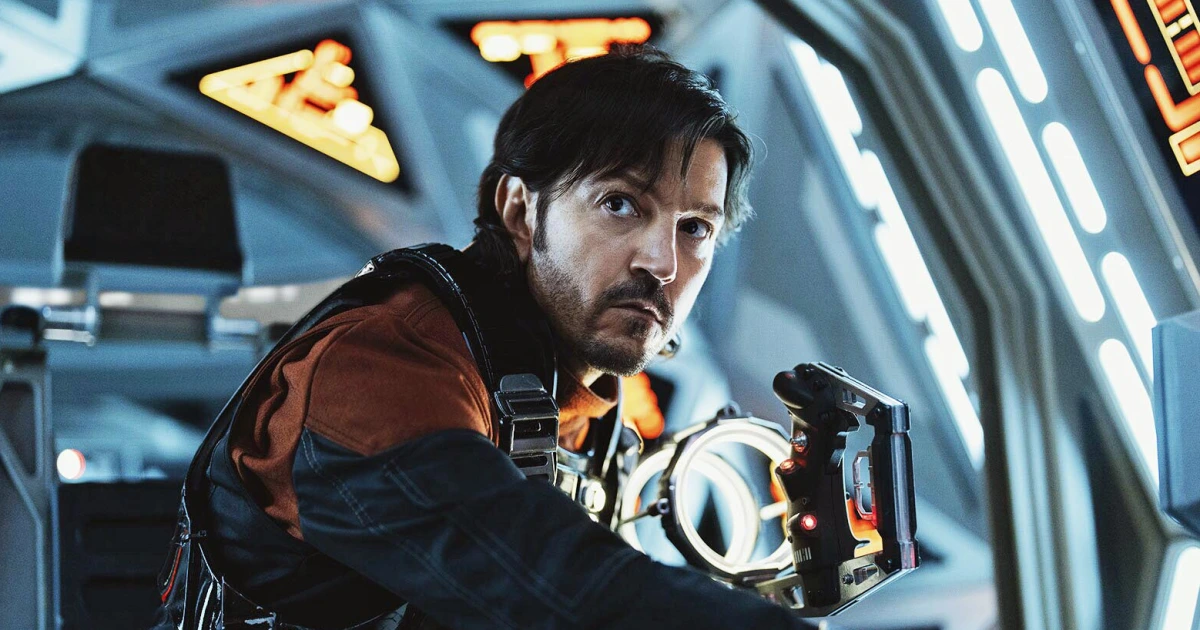Warning: This article contains spoilers for the show “Andor.”
It takes place a long time ago in a galaxy far, far away, but its plotlines seemed pulled right out of today’s headlines.
The second season of Disney’s “Andor” a “Star Wars” series that takes place nearly two decades after the Empire’s rise, has debuted to raves from critics and many fans who have praised its ability to weave together the power critiques of its space opera source material with even more topical subjects like immigration.
“This is George Lucas’s dream for Star Wars manifest in its purist form,” wrote Griffin Schiller, a film critic and YouTube host, on X, referencing the franchise’s creator. “Anti-authoritarian art delivered through populist channels.”
The new season, which debuted Tuesday on Disney+, focuses on a time when many within the galaxy live in fear of the fascistic Empire. It centers around thief-turned-rebel spy Cassian Andor (Diego Luna), who fans first meet in the 2016 feature film “Rogue One: A Star Wars Story.”
In season one, the events on Cassian’s adoptive home planet of Ferrix help radicalize him, ultimately turning him into a leader within the resistance movement. Season two picks up with Cassian continuing the rebellion efforts, as the Empire furthers its agenda.
“Andor” creator and showrunner Tony Gilroy told Rotten Tomatoes in a recent interview that he studied revolutions throughout history in writing the series.
“For me, it was really important that by the time we were done, it was a definitive work about revolution, as many things as I could get in there from all the revolutions I’d read about,” “In season two, we introduce propaganda and the use of media, we introduce large-scaled destruction of a planet, not just colonialism. We also deal with all the factionalism, every revolution you read about has multiple factions that are all fighting the one thing that’s pissing them off. At the end then they’re at each other’s throats.”
The focus on those themes has inspired some on social media to see echoes of the current U.S. political landscape, particularly as President Donald Trump’s early second administration faces a growing crowd of critics who say he is headed toward authoritarianism.
“Genuinely insane how relevant these political issues in Andor are and it was written before the current presidential administration came into power,” wrote one X user.
Ideas about power and rebellion have been central to “Star Wars” ever since its debut in 1977, and Lucas, the creator of the franchise, has said “Star Wars” is anti-authoritarian.
But Disney’s efforts to extend Lucas’ universe with various spin-offs has drawn criticism from fans who say some of the titles deviate too much from the original trilogy.
Some have also said the franchise has gotten “too woke.” Last April, Disney CEO Bob Iger said the studio’s job was to “entertain, first and foremost” and “not to advance any kind of agenda.”
Much of the negative sentiment toward the franchise appears to have shifted with the release of “Andor,” which has been described as some of the best “Star Wars” storytelling ever.
The season 2 premiere opens with Cassian stealing a prototype TIE fighter from an Empire base with help from an Imperial worker. When she tells him she’s scared of the repercussions of helping the Rebellion, he gives her a rousing pep talk about the why of it all.
“The Empire cannot win,” he says. “You’ll never feel right unless you’re doing what you can to stop them. You’re coming home to yourself. You’ve become more than your fear. Let that protect you.”
The episode also includes a scene in which Imperial Director Orson Krennic (Ben Mendelson) leads a secret meeting with a group of high command officers in which he discusses a plan to take over the peaceful planet Ghorman.
Gilroy told the Hollywood Reporter that he took direct inspiration from World War II history for the scene, specifically when the Third Reich plotted its Final Solution at the Wannsee conference in 1942.
“The very first scene that Krennic has where he talks about Ghorman, that’s based on the Wannsee convention — the Nazi convention where the Nazis got together and planned the final solution over a business lunch,” Gilory said.
In episode three, imperial troops search for “undocumented” workers who don’t have visas on a planet in the outskirts of the galaxy. It is during this episode that the “Star Wars” franchise also delved into where it has never gone before by including a storyline in which an Imperial lieutenant attempts to rape Bix Caleen (Adria Arjona), Cassian’s love interest who is hiding out with fellow Ferrix refugees on the planet where Imperial forces have landed.
“I know you’re illegal, we’ve been counting visas. It’s a tough spot for everyone,” he tells her, before implying if she has sex with him he won’t turn her in.
In his original six “Star Wars” films, Lucas infused his storytelling with critiques of the U.S. war in Vietnam and President George W. Bush’s administration.
Arjona told Variety that they shot the episodes a year and a half ago — but the plot’s relevance to today is not lost on her.
“It’s just mirroring that we keep stumbling on the same rock,” she told the publication. “It’s one of my favorite parts about the show. It’s relevant now, and it’s going to be relevant in five years and 10 and 20 and 50 years, because we keep doing the same thing.”
Some fans online praised the series for tackling political issues.
“Andor Ep1 already has leftist infighting and global supply chain issues We love to see it,” wrote one X user.
“the discussion about undocumented immigration and visas in those first three episodes… oh this show is touching on REAL topics” wrote another.
The show will drop three new episodes every Tuesday. The finale will be released on May 13.
